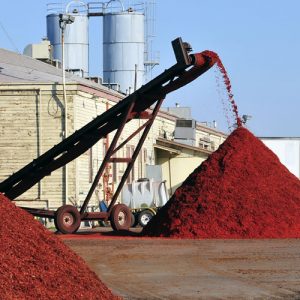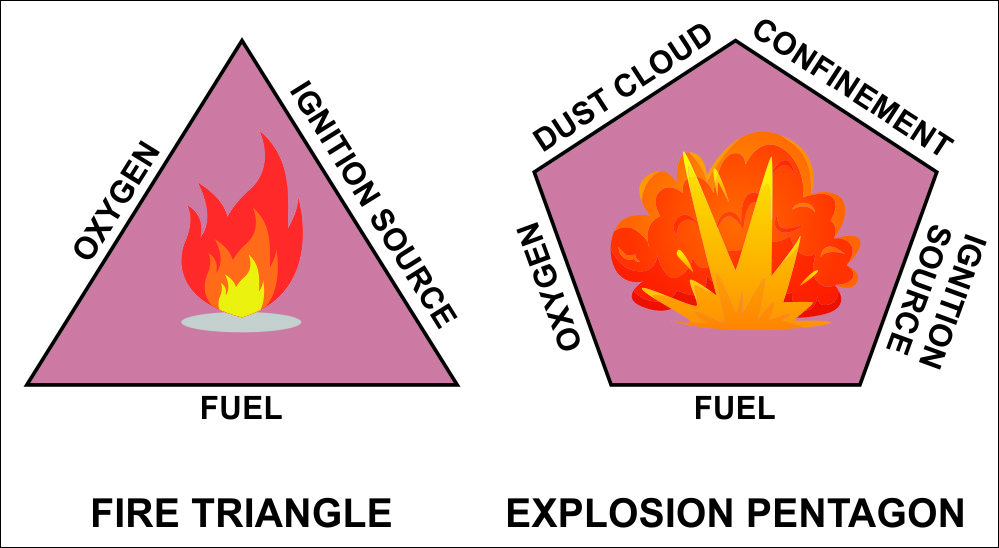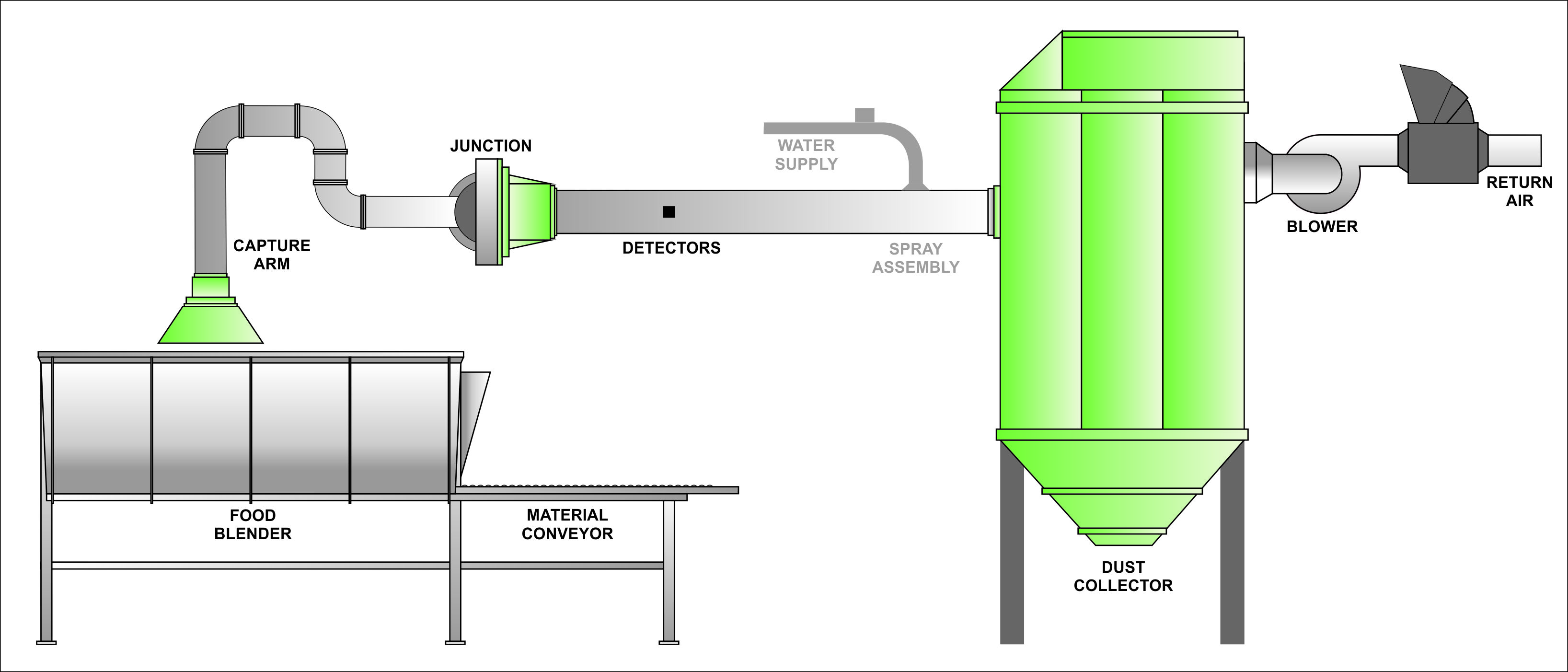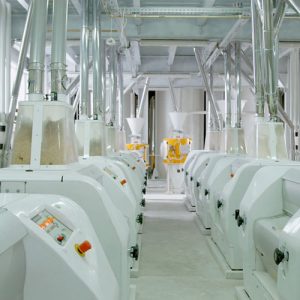Spark Detection in Food Processing Facilities
A typical food processing facility would have many machines working with sugar dust or flour. These machines would have pickups or capture arms that would connect to a main duct with the dust from each machine being pulled to a dust collector. The clean air would be recycled back into the building.
The dust collector is a potential location for a fire or explosion.


In a food processing facility, an ignition source could be a spark that originates from user error, or faulty equipment.
The spark detection system is designed to extinguish into the duct, so the spark does not become an ignition source in the dust collector.

The detectors must be installed downstream from all equipment or entry points to the main duct. This is to ensure the detectors will see a spark from all possible sources on the ductwork.
The detectors are mounted on the sides of the duct after the last material pickup point. The water spray assembly is mounted on the top of the duct a distance downstream from the detectors. This distance is based on the air speed.
An abort damper is used on return air ductwork to prevent any smoke or flames from returning to the building.
When one of the detectors see a spark, the system will activate the water spray, activate an abort damper, shut down the fan and send a signal to a central alarm panel.
A small amount of water is sprayed into the duct. The alarm can be cleared on the spark detection panel. Once it has been confirmed there are no further issues, the dust collection system can be started, and operations can resume.
In some applications, it is not possible to extinguish into the duct with water as it could contaminate the food. In these cases, the spark detection system will shut down the fan and signal the user that there was an alarm.


